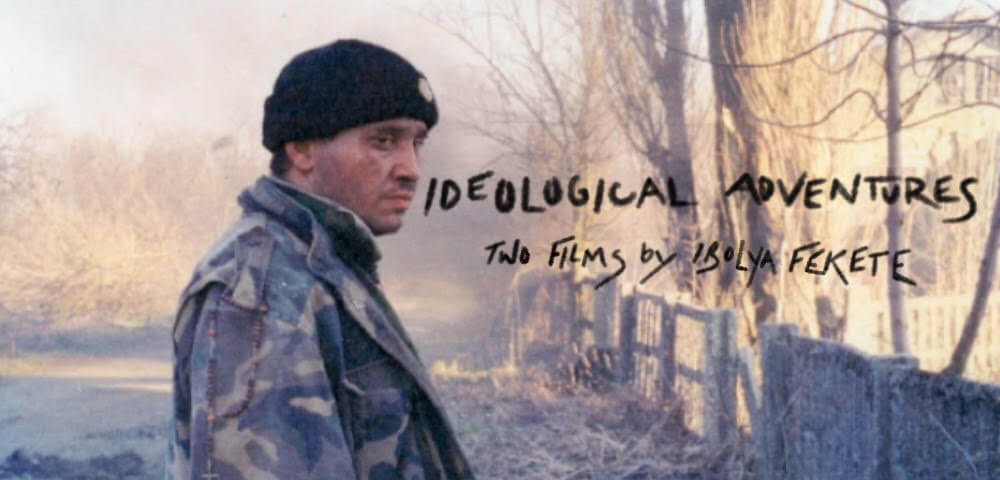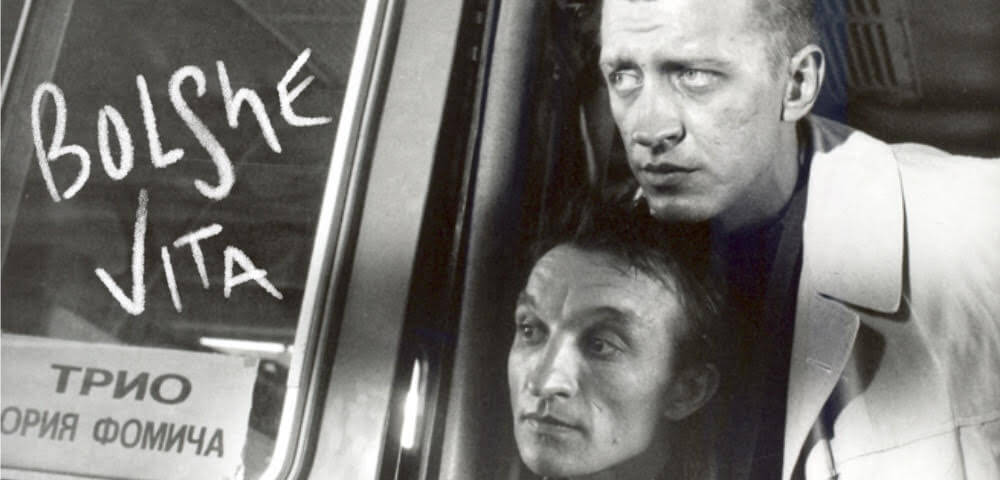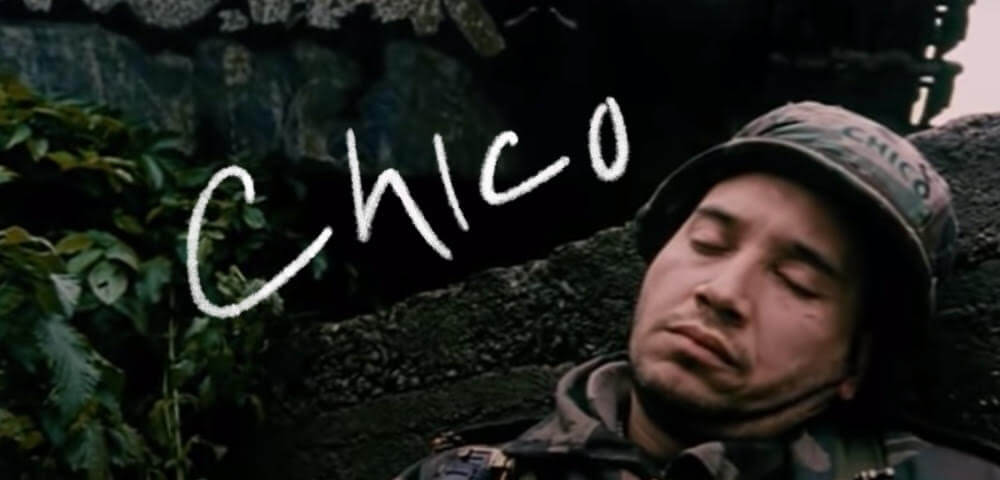
Hungarian filmmaker Ibolya Fekete began making documentaries in the late’80s in an attempt to capture the radical changes happening around her. In the wake of the collapsing Soviet communist regime, the whole of Eastern Europe was left scrambling as processes of democratization, nation building, economic upheaval, and violent conflict coincided. Though the nonfiction films she completed during this time are vital archival records, the difficulty in “authentically” representing this politically tangled and ideologically confused period spurred Fekete to infuse its people, places, and events into scripted narratives.
Fekete’s interest in “fiction, with a documentary attitude” culminated in two dense metahistorical feature-length works, BOLSHE VITA and CHICO. This May, Spectacle is pleased to present both in a rare program. Following a select screening of each, the filmmaker will join us for a remote Q&A. The discussion following the May 24th screening of CHICO will be moderated by author and New York University Associate Professor, Michael B. Gillespie.

BOLSHE VITA
dir. Ibolya Fekete, 1995
Hungary. 95 min.
In Russian, English, and Hungarian with English subtitles.
FRIDAY, MAY 10 – 7:30 PM with filmmaker Q&A (This event is $10.)
TUESDAY, MAY 14 – 10 PM
WEDNESDAY, MAY 22 – 10 PM
FRIDAY, MAY 31 – 5 PM
Fekete’s first feature is a little-seen gem of ‘90s independent cinema. Set in post-89’ Hungary after the fall of the Berlin Wall and the collapse of the Iron Curtain, the film follows an eclectic troupe of émigrés, exiles, and sojourners from East and West as they converge in the eponymous Budapest rock club, Bolse Vita. During this fleeting period of open borders, the transcultural space offers a utopic vision of bohemia and optimism, but also looming dread over the ephemeral nature of it all. Musicians Yura and Vadim revel in their newfound freedom to busk while falling victim to extortion, anti-Russian violence, and the encroachment of capitalism. They find shelter with Maggie and Susan, who enjoy a much more carefree existence as Western vagabonds. Meanwhile, Sergei, a Russian mechanical engineer, struggles to find work and is forced to sell wares in Budapest’s Soviet black markets. Caught between the “short, but memorable period when East Europe was happy” and the increasingly grim reality of post-communism, BOLSHE VITA provides an invaluable contextualization of a vibrant, tumultuous, and overlooked history.
The film establishes Fekete’s key concerns with transience, displacement, historiography, and identity as well as her signature blurring of documentary and fiction. In interspersed montage sequences, the film inserts archival material from her earlier documentaries, BERLIN AND BACK (1990) and CHILDREN OF THE APOCALYPSE (1992). Images of revolutionary triumph and border crossing intermingle with unsettling acts of violence to offer a less totalizing version of Eastern Europe’s geopolitical past. Utilizing a cast of nonprofessional actors, the film also offers the first glimpse of Eduardo Rósza Flores through his brief appearance as a Chechen mafioso. Flores’ incredulous backstory would inspire Fekete to adapt his life to screen in her follow-up feature, CHICO.

CHICO
dir. Ibolya Fekete, 2001
Hungary. 112 min.
In English, Serbian, Hungarian, Spanish, and Croatian with English subtitles.
WEDNESDAY, MAY 8 – 10 PM
FRIDAY, MAY 24 – 7 PM with filmmaker Q&A (This event is $10.)
TUESDAY, MAY 28 – 7:30 PM
“This film contains fictional and real elements. The characters and events portrayed are therefore all fictional.”
—Ibolya Fekete
With CHICO, Ibolya Fekete’s follow-up to BOLSHE VITA, the Hungarian luminary further dissolves lines between fiction and fact through an amalgam of archival footage, documentary-style interviews, and the dramatic restaging of one man’s larger-than-life true story. A Hungarian-Bolivian, Catholic-Jewish communist, spy, journalist, soldier, and amateur actor, Eduardo Rósza Flores, nicknamed “Chico,” spends a lifetime navigating his competing identities as they increasingly implicate him in major moments of both Latin American and Eastern European history. In the film, he appears as a child of Che Guevara and Salvador Allende’s revolutionary politics, a leftist exile fleeing Pinochet’s coup d’état in Chile, a translator for international terrorist Carlos the Jackal, a journalist during the Yugoslav Wars, and a commander in the Croatian War. If that wasn’t enough to juggle, in CHICO Flores plays himself, delivering a dynamic performance filled with black humor, unbridled charisma, and general confoundment at the baffling situations he continually finds himself in.
Winner of Best Director Prize at Karlovy Vary Film Festival in 2001 and the Grand Prix from Hungarian Film Week in Budapest, Fekete’s “ideological adventure” is an ambitious feat that mobilizes one man’s search for meaning into a model for understanding the convoluted and contradictory nature of history. Seldom screened since its initial release over two decades ago, Spectacle is thrilled to shed light on CHICO.
Special thanks to Ágnes Iski, Ibolya Fekete, and Michael B. Gillespie.
